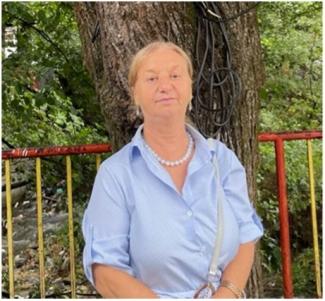In the foothills of Kosovo's Sharri mountains, the Bosniak community of Rečane has long felt overlooked. With few recreational facilities available in the town, the community’s children were forced to play in the mud of a ruined sports field dating back to the 1970s. Local school principal Rajma Sagdati repeatedly lobbied to renovate the 50-year-old field, but her requests went unanswered.
After years of fruitless efforts, things took a turn for the better in July 2023. That month, Mrs. Sagdati saw an opportunity when she learned that Rečane was taking part in a new USAID-led participatory budgeting initiative where citizens propose and vote on projects to receive municipal funds.
She rallied her community, and in a meeting with the mayor—held in her own school, the only public space in the village—she proposed a plan to restore and expand the sports field. The community’s support was clear, and her project was one of three proposals up for vote.
Two weeks later, 73 residents cast their votes, and Mrs. Sagdati’s sports field was selected as the winning proposal. In September 2023, the project was included in the municipal budget, and by the following year the renovation was completed.
For Rečane, the renovated field is more than just a recreational space—it represents a victory for community empowerment. The town’s experience is also part of a much larger trend across Kosovo. Citizens engaged in participatory budgeting across Kosovo nearly doubled between 2023 and 2024, with more than 2,450 individuals across 43 now active. This has led to municipalities selecting 216 community-driven projects to date.
For communities, the process of selecting each of these projects is building new trust between citizens and their government. It’s showing citizens in places like Rečane that they have tools to bring about real change that can shape the future of Kosovo from the ground up.
Photo Caption: “Participatory budgeting, involves citizens in selecting community projects, creating trust in the government and showing citizens that their voices matter.”

